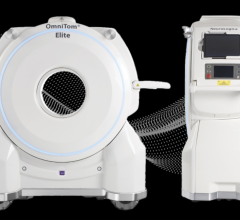
February 1, 2017 — Lightpoint Medical announced in December positive clinical trial results for its intraoperative imaging technology in breast cancer surgery. The first-in-human clinical trial showed that intraoperative molecular imaging was a feasible, low-risk, and accurate procedure for assessing tumor margins intraoperatively. The study was conducted by Guy's and St Thomas' Hospital London and published in the Journal of Nuclear Medicine.
Breast-conserving surgery (BCS), also called lumpectomy, is the primary treatment for early-stage breast cancer, yet approximately 1 in 4 patients undergoing BCS will need to undergo repeat surgery. Repeat operations are required so frequently because surgeons lack a means to precisely detect the cancer in the initial surgery. Intraoperative molecular imaging potentially provides a means to assess the extent of cancer during surgery and reduce the need for repeat operations.
The study's principal investigator, Prof. Arnie Purushotham from King's College London and Guy's Hospital, commented: "We're delighted to present these exciting first-in-human results on the use of intraoperative molecular imaging in breast-conserving surgery. This clinical trial showed that molecular imaging agreed strongly with gold standard pathology and was straightforward to interpret. Although the technology is still in its early days, we believe intraoperative molecular imaging holds considerable promise for improving clinical outcomes in breast cancer patients."
The LightPath Imaging System is CE Marked and approved for sale in the European Union. The clinical trial was supported by funding from Innovate UK, Cancer Research UK King's Health Partners Experimental Cancer Medicine Centre, Guy's and St Thomas' Charity, and the National Institute for Health Research (NIHR) Biomedical Research Centre at Guy's and St Thomas' NHS Foundation Trust and King's College London.
For more information: www.lightpointmedical.com
References
Grootendoorst MR et al. “Intraoperative Assessment of Tumor Resection Margins in Breast-Conserving Surgery using 18F-FDG Cerenkov Luminescence Imaging - A First-in-Human Feasibility Study.” The Journal of Nuclear Medicine. Published Dec. 8, 2016. doi:10.2967/jnumed.116.181032


 July 30, 2024
July 30, 2024 








